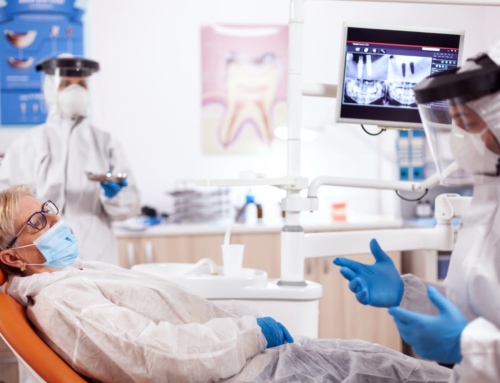The symptoms of a dental emergency can include pain, discomfort, swelling, and even more serious complications.
Understanding the difference between a regular dental issue that can wait until morning and a real emergency that can put your health at risk is essential. A dental emergency is any problem that requires immediate attention in order to stop bleeding, relieve severe pain, or save a tooth. The same is true for severe infections that can be life-threatening.
When to seek emergency dental treatment
If you are involved in an accident, there is a possibility that your teeth, jaw, and oral tissues will be damaged. You are more likely to develop primary and secondary complications if you suffer from oral health issues other than dental injuries. You should not always wait until you are experiencing severe pain to address dental problems.
The good thing you can do for your oral health is to seek emergency dental care as soon as possible. Consequently, you might suffer excruciating pain and risk losing your teeth or becoming infected. According to Clearwater Family Dental professionals, there are a number of situations that may require emergency dental treatment, including:
Knocked-Out Tooth
You might experience severe pain and bleeding if you lose a tooth that has been knocked out or fractured. A professional can put your knocked-out tooth back in its socket if you act quickly. The chances of saving your teeth depend on your actions. If you are experiencing an urgent dental problem, you should schedule an appointment with an emergency dentist in your area right away.
Bleeding
The bleeding that occurs when you brush your teeth is an indication of gingivitis. If you experience any of these symptoms, you may have periodontitis and should seek immediate treatment. There are times, however, when you might experience profuse bleeding on your gums after a tooth extraction or when you are injured. Emergency dental care is recommended to prevent excessive bleeding.
Cost of seeing an emergency dentist
You will not have to pay more for an emergency dentist appointment than you would for a regular one. Services provided in an emergency should be charged at the same rate as if they were provided under normal circumstances. Both should be covered by your insurance.
In the event of a dental emergency, make sure you consider the insurance plan’s deductible and coverage limitations.
If you do not have dental insurance, a dentist can tell you how much treatment will cost before you begin treatment. In addition, if you need financing, emergency dentists may be able to help as well.
On a concluding note, if you lack dental insurance, preventative measures are the way to save money. When your teeth are properly cared for and essential dental work is done promptly, you can prevent many emergencies. You should not wait until an emergency arises to seek dental care if you do not have dental insurance. Nonetheless, you can always find an Emergency Dentist in Sarnia to help you with any unfortunate emergencies.






